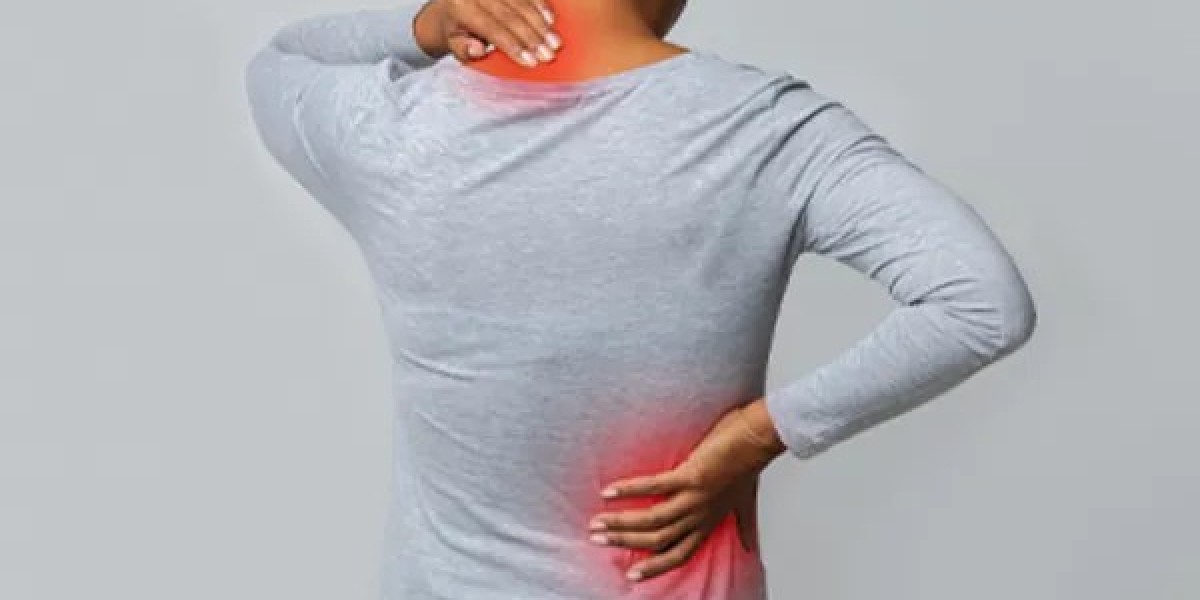Traveling with fibromyalgia can present unique challenges due to chronic pain, fatigue, and sensitivity to environmental changes. Many patients looking for fibromyalgia treatment in Dubai(علاج الفيبروميالجيا في دبي) also seek advice on how to enjoy trips without exacerbating their symptoms. With the right preparation and mindset, travel can remain a fulfilling experience rather than a source of stress or pain.
Whether it’s a short weekend getaway or a long international journey, these travel tips will help manage symptoms and maximize comfort while on the road.
Preparing for Your Trip: Planning Ahead is Key:
Proper planning can make all the difference when traveling with fibromyalgia. Consider these essential preparation steps:
Consult Your Healthcare Provider: Discuss your travel plans and any adjustments needed for medication or therapy.
Pack Smart: Include all necessary medications, supplements, and pain relief items.
Choose Accommodations Wisely: Look for places with comfortable beds, climate control, and easy access to amenities.
Plan for Rest: Schedule downtime into your itinerary to avoid overexertion.
Arrange Travel Insurance: Ensure it covers chronic conditions and emergency medical care.
Early preparation reduces stress and allows you to focus on enjoying your trip.
Managing Pain and Fatigue During Travel:
Travel can strain the body in unexpected ways. Here’s how to stay comfortable and minimize discomfort:
Use Supportive Travel Gear: Bring neck pillows, lumbar cushions, and compression socks.
Stay Hydrated: Dehydration worsens fatigue and muscle stiffness.
Take Frequent Breaks: Move and stretch during long flights or drives.
Apply Heat or Cold Therapy: Use portable heating pads or cold packs to ease pain.
Wear Comfortable Clothing: Opt for loose, breathable fabrics to avoid irritation.
These small adjustments can greatly improve your travel experience.
Choosing Transportation Wisely:
Selecting the right mode of transport and seating arrangements can impact your comfort:
Request Aisle Seats or Extra Legroom: Easier access for standing and stretching.
Consider Direct Flights or Routes: Minimizes travel time and transfers.
Use Mobility Aids if Needed: Wheelchairs or scooters at airports reduce walking fatigue.
Plan Travel Times According to Energy Levels: Travel when you feel most rested.
Bring Noise-Canceling Headphones or Earplugs: To reduce sensory overload from noisy environments.
Being mindful of transportation options helps manage symptoms effectively.
Packing Essentials for Fibromyalgia Travelers:
Your packing list should prioritize comfort, health, and convenience:
Medications and Prescriptions: Keep these in carry-on bags with extras in checked luggage.
Pain Relief Tools: Portable TENS units, heat patches, or muscle rubs.
Compression Clothing: To improve circulation during travel.
Comfort Items: Eye masks, earplugs, and blankets.
Healthy Snacks and Water Bottle: Maintain nutrition and hydration on the go.
Copies of Medical Records and Doctor’s Contact Info: Useful in emergencies.
Being well-prepared reduces anxiety and supports symptom management.
Maintaining a Healthy Routine While Traveling:
Staying consistent with self-care routines helps prevent symptom flare-ups:
Stick to Your Medication Schedule: Set alarms or reminders if needed.
Incorporate Gentle Movement: Stretch regularly to prevent stiffness.
Prioritize Sleep: Use earplugs and eye masks to improve sleep quality in unfamiliar environments.
Eat Balanced Meals: Avoid excessive caffeine or sugar, which can trigger symptoms.
Practice Relaxation Techniques: Deep breathing, meditation, or guided imagery to reduce stress.
Consistency is key to managing fibromyalgia on the move.
Navigating Accommodations: Making Your Stay Comfortable:
Your choice of lodging plays a big role in symptom control:
Request Ground-Floor Rooms or Elevators: Minimize stairs and walking.
Check Bed Type and Mattress Firmness: A comfortable mattress can prevent pain.
Ensure Climate Control Availability: Maintain optimal room temperature.
Ask About Accessibility Features: Grab bars, walk-in showers, and easy bathroom access.
Bring Personal Comfort Items: Your own pillow or heating pads for familiarity.
A restful environment supports your overall well-being during travel.
Coping with Unexpected Challenges:
Travel rarely goes perfectly, so prepare for obstacles calmly:
Have a Backup Plan: Extra medication, alternate routes, and emergency contacts.
Allow Flexibility: Don’t overpack your schedule; rest if symptoms worsen.
Stay Connected: Keep in touch with your healthcare provider if needed.
Listen to Your Body: Stop or modify activities if pain or fatigue spike.
Use Stress Management Tools: Journaling, music, or relaxation apps to maintain calm.
Adaptability is a vital skill when traveling with fibromyalgia.
When to Seek Professional Travel Support:
If travel anxiety or symptom management feels overwhelming, professional advice can help:
Some clinics offering fibromyalgia treatment (علاج الفيبروميالجيا ) provide travel consultations.
Occupational therapists can suggest strategies for energy conservation.
Pain specialists may adjust medications for travel.
Travel health experts can advise on vaccinations and preventive care.
Professional guidance ensures you’re prepared and confident.
Conclusion:
Traveling with fibromyalgia requires thoughtful preparation and self-care, but it is absolutely possible to explore new places and create joyful memories. By planning ahead, pacing yourself, and optimizing your environment, you can minimize pain and fatigue during your trips.
Whether you’re traveling locally or internationally, these tips will help you maintain comfort and control. For those pursuing fibromyalgia treatment in Dubai, incorporating travel strategies into your overall care plan further enhances quality of life and wellness.
Safe travels and happy adventures!






